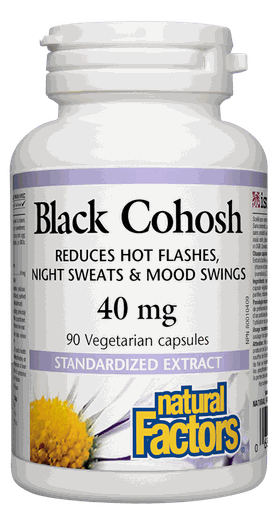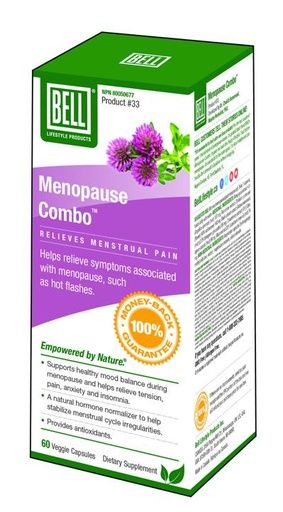Hot flashes are one of the most common symptoms during perimenopause and menopause, with up to 75% of women being affected. Along with experiencing intense heat, some women may also feel a red or flushed face, increased sweating (especially at night), chills, and the sensation of your heart beating faster. Hot flashes are not considered harmful, but frequent flashes (or any concerns you feel are not "normal") should we discussed with a medical professional.
So what exactly causes hot flashes? While the exact cause it not known, there is some research that connects them to the brain and more specifically, the hypothalamus. The fall of estrogen effects the hypothalamus' temperature control system as it's trying to make adjustments, which can be felt as sweating or shivering. This can also alter the levels of adrenaline and serotonin, which also effects the hypothalamus. The balance of these neurotransmitters are important because the more stressed you feel during perimenopause, the more likely you will experience hot flashes.
For some women, hot flashes can be so uncomfortable that they can’t even get a decent night’s sleep. Here are a few ways to make hot flashes more tolerable through lifestyle and supplement recommendations.
Diet and Lifestyle Recommendations
Let’s start with potential triggers. It’s good to know what may be triggering the hot flashes and working against you. Things to avoid during menopause include alcohol, caffeine, spicy foods, hot temperatures, tight clothing, stress, anxiety and smoking. [1] Make your day easier by wearing layers of light, soft and comfortable clothes. That way when a hot flash hits you, you can remove the layers and throw them back on when it passes and you’re cool again. Avoid those tight clothes that may be triggering hot flashes and wear something light.
Keep yourself hydrated throughout the day and sip cool, iced water, especially at the beginning of a hot flash. In the mornings, before bed in the evenings and when you start the feel the beginnings of a hot flash try slow abdominal breathing.[2] Breathe five to seven times per minute, way slower than you normally would.[3]
Help de-stress by exercising regularly (just don’t over exert yourself) and participating in calming activities such as yoga or getting a massage (you can totally justify a spa day with this). To help you sleep at night keep a book and a glass of iced water on your nightstand to help you get through your hot flash and get back to sleep in the middle of the night. Keep an ice pack under your pillow so that when you turn your pillow over it’s nice and cool on your face. Wear breathable and light clothes to bed.
Keep the overall temperature in your home cool. Open windows and/or use fans to keep your environment cool and stress free.
Healthy eating and exercise will help hot flashes in the long run so maintain an overall healthy lifestyle, keep calm and grab a glass of cold water!
Natural Herbs for Hot Flashes
Sage - During menopause the hypothalamus can become stressed by all of the hormonal changes and fluctuations that occur. And because the hypothalamus plays a role in temperature regulation, it can be a contributing factor to hot flashes. Sage may help support the hypothalamus and bring it back in to balance, thus, reducing hot flashes.
Red Korean Ginseng - In one study, Red ginseng has been proven effective at alleviating the severity and occurrence of hot flashes. It also helps post menopausal women decrease their risk of cardiovascular disease [4]. Try Red Korean Ginseng in a tea or supplement form, but best to start slow or take in the morning as it can cause jitteriness, insomnia, headaches, and agitation in some people.
Dong Quai - May help to regulate estrogen levels when entering into menopause. It also can help with pelvic pain associated with menopause and study found that a combination of Dong Quai and chamomile helped reduced hot flashes by 96% [5]
Red Clover - Contains phytoestrogens (plant estrogen) which may help with general menopause symptoms, such as hot flashes
Black Cohosh Root - This root has been shown to help reduce hot flashes and some research indicates it's particularly beneficial for women who experience early menopause.
Teas are a great option for those individuals who are more sensitive to supplements or tinctures. As always, please speak to your medical practitioner before starting any herbal supplements.
[1] http://www.healthline.com/health/menopause/understanding-hot-flashes#Triggers4
[2] http://www.webmd.com/menopause/guide/menopause-hot-flashes
[3] http://www.menopause.org/docs/for-women/mnflashes.pdf
[4] https://pubmed.ncbi.nlm.nih.gov/22027944/
[5] https://pubmed.ncbi.nlm.nih.gov/14664413/
General Source: https://www.healthline.com/health/menopause/tea-for-menopause#teas-for-relief
All information and tools presented and written within this article are for educational and Informational purposes only. Any nutrition, lifestyle and product recommendations are not intended to diagnose, treat, cure, or prevent any disease. Before starting any new supplements, diet and exercise program please check with your doctor or practitioner.






